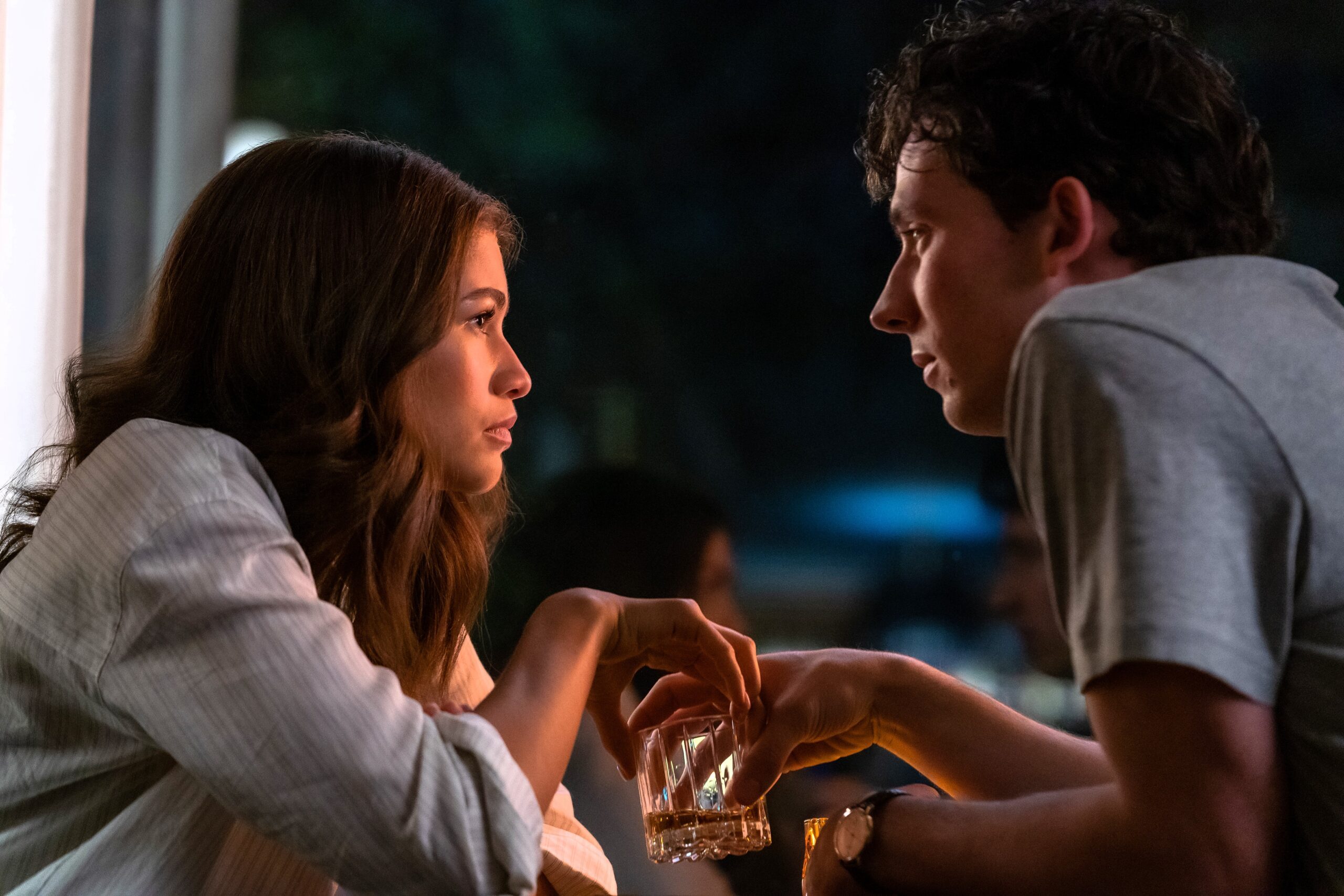SUMMARY
This is AI generated summarization, which may have errors. For context, always refer to the full article.

This review contains minor spoilers.
There’s a moment where the camera switches to the first-person point of view of Mike Faist and Josh O’Connor as they play a pivotal tennis match. Shortly after, the camera seems to be thrust inside a tennis ball, and we, the audience, are figuratively bounced back and forth with every hit of the racket.
Zendaya is in the middle of it all, watching anxiously, fully aware of the stakes – what it means to win or lose, and how that outcome is achieved. She had suffered a career-ending knee injury, which extinguished the fire and potential that could have made her a generational player.
However, her sitting on the sidelines doesn’t mean she is entirely passive; she orchestrated this mess because of one flaw. Her one inescapable and immutable defect: she thinks tennis and relationships are the same thing.
Knowing this contextualizes the film’s storytelling and its defiance of form. The imaginative camera angles, rapidly changing timelines, and sultry moments all serve to channel the message that this sweaty and deeply physical one-on-one sport expresses more than meets the eye.
With tennis’ constant back and forth, and the players jockeying for power, what begins as a competitive match morphs into a fiendishly passionate romance of both tragic and epic proportions.
Patrick Zweig (Josh O’Connor) and Art Donaldson (Mike Faist) are childhood best friends who compete together at the US Open in 2006. They meet Tashi Duncan (Zendaya), a young tennis prodigy who is miles above the competition. The two boys develop a fatal attraction to the prodigy, kickstarting a battle for her affection that culminates in the film’s climactic tennis match in 2019.
During their college years, Tashi suffers the said injury, abruptly cutting her tennis career short. This leads her to coaching, specifically for Art. Both have grown distant from Patrick after the incident, but now the film poses three central questions: Will Tashi ever be satisfied living vicariously through Art’s tennis career? Will Art ever live up to the competitive spirit under Tashi’s shadow? And will Patrick ever reconcile with his once-best friend?
Told in a non-linear timeline, director Luca Guadagnino (of Call Me By Your Name and Bones and All) brings Justin Kuritzkes’ script to life with remarkable poise and creative flair. Kuritzkes, who is notably the husband of Past Lives director Celine Song, delivers storytelling punches with minimal dialogue yet extremely explosive hints of tension.
There are imaginative phallic symbols between Faist and O’Connor that border on earnest comedy. Brilliantly constructed shots feel straight out of a video game or an anime, with visual moments that are deftly set up and revisited at just the right time.
It has everything I could ever ask for in a film about a throuple that also happens to be about tennis. It boasts a Shakespearean edge, twisty betrayals, and layers upon layers of emotional complexity.
Power is sexy
Despite the constant barrage of marketing this film as “the sexiest film ever made,” there is some truth to that claim. The film isn’t focused on sex, nor does it contain scenes considered titillating by today’s standards; rather, it explores the power wielded by those who use sex.
From a Foucauldian perspective, both sex and, by extension, tennis, serve as tools for control and manipulation. Against this backdrop, Patrick leverages his sexuality to compensate for his lack of prestige and financial capital.
Meanwhile, Zendaya’s Tashi uses her sexuality as a medium of power, exerting control over relationships and influencing outcomes to her advantage. Eventually, Art loses his passion for tennis, which Tashi interprets as a loss of sexual capital.
Extending this idea is a pivotal scene early on. Bathed in moonlight by the seaside, a young Tashi imparts a lesson to the boys: tennis, she argues, is fundamentally a relationship. Every rally and return with an opponent forges a bond, one that mirrors the dynamics of passion.
There is a winner and a loser, and there is no point in competing with someone who cannot match your level. It’s a setup for how the three will view their inevitable decades-long entanglement: as a rivalry between power mongers.
These concepts underpin each intimate, lip-smacking, tongue-filled festivity. Guadagnino utilizes his visual expertise in intimacy and fills each frame with the irresistible faces of Faist and O’Connor in such a manner that the two seem inseparable.
The chemistry between the two is simply out of this world; every stare feels like silent missiles effortlessly finding their targets. Their use of body and motion never once breaks the illusion that they aren’t best friends or tennis pros. There’s a confidence to the duo’s performance that oozes charm and felicity.
Relationships and tennis
On the other hand, Zendaya, while touted as the star driving the film’s heart, remains somewhat elusive. We meet her as a titan of tennis, and that facade never really fades away. Her layers are far harder to peel, and it doesn’t help that she feels secondary to the more compelling tragedy of Patrick and Art.
The film attempts to juggle two tragedies: the loss of friendship and the loss of potential. Tashi falls under the latter category, but her struggles to recover from her injury are limited to just two scenes and still fall short of fully showcasing how that particular moment changes the orbit of her two friends.
While I enjoyed the constant timeline changes, I wish the film had devoted more attention to bridging the gap from Tashi’s transition from one of the most talented tennis prospects to a coach and foundation figurehead.
This is exacerbated even further when Tashi, who is supposedly in her 30s by the time 2019 rolls around, becomes an entirely different woman whom we barely recognize. And when she relapses into decisions her younger self would make, it seems uncharacteristic plot-wise, but since this is the only Tashi we’ve ever known, it doesn’t feel as drastic.
Putting that aside, the film rocks with its electrifying techno soundtrack by Atticus Ross and Trent Reznor, who both ask the question, “How can we make sports even more exhilarating?” The editing is crisp and gripping, and the eroticism is portrayed so vividly that you might feel as if you’re right there with the throuple if you’re not careful.
There is so much to like about Challengers, from its creative structure to its unique perspective on how love drives competition. But perhaps its most memorable feature is how it can make the final minutes be a wordless tennis match, filled with nothing but the sounds of grunts and the bounces of Chekhov’s balls.
This scene is enough to leave even those who are new to tennis or generally indifferent to it become completely captivated, and believe that, just for a moment, they are watching the sexiest film ever made. – Rappler.com
“Challengers” is showing exclusively in Ayala Malls cinemas nationwide.
Add a comment
How does this make you feel?
![[Only IN Hollywood] Meet cinema’s hottest new threesome: Zendaya, Josh O’Connor and Mike Faist](https://www.rappler.com/tachyon/2024/04/only-in-hollywood-challengers-thumbnail-scaled.jpg?fit=449%2C449)




There are no comments yet. Add your comment to start the conversation.